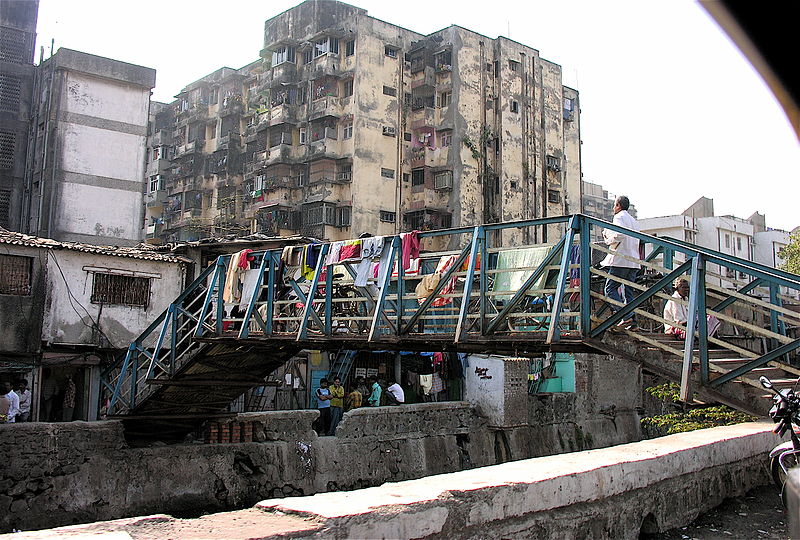Headline
Rights group decries India’s enduring reliance on low caste workers to clean human waste

An entrance to the largest slum in Mumbai, and in all of Asia – home to more than one million people. Photo by Jon Hurd / Flickr.
NEW DELHI—Hundreds of thousands of impoverished, low-caste Indians are still working with their bare hands to clean human excrement from open roads and millions of dry pit latrines across the country, despite Indian laws prohibiting such work, an international rights group said Monday in urging reform.
Ancient and deep-rooted patterns of caste discrimination have kept manual scavengers, as they are known, from escaping their traditional role as waste cleaners, Human Rights Watch said in a report.
Scavenging is mostly carried out by a sub-group of the dalits, an outcast community also known as “untouchables” within India’s ancient system of caste hierarchies. They are often impoverished, shunned by society and forbidden from touching Indians from other castes, or even their food.
That discrimination, as well as chronic debt, blocks them from other jobs and opportunities, Human Rights Watch said.
“When you have no one to clean, only then do you build a proper toilet. That’s not happening here, because there is a community that can be made to clean it,” said Meenakshi Ganguly, the New York-based group’s South Asia director. “It’s just so appalling, so no one is going to dispute that manual scavenging must end. But then, they need to make it happen.”
There is no firm number for the number of Indians still practicing manual scavenging, earning as little as 1 rupee (about 2 U.S. cents) a day, or sometimes only their daily bread.
The International Dalit Solidarity Network estimates 1.3 million people are stuck in what it calls the “forced labour” or “slavery” of manual scavenging. The government, which consistently cites figures far lower than those given by civil society groups, said last week that it had counted only 11,000 scavengers in 23 of India’s 29 states, though it had yet to survey the other six states. It did not give details.
Human Rights Watch estimates there are at least hundreds of thousands manually cleaning human excrement, Ganguly said, “especially if you also count those cleaning train tracks, clogged drains or septic tanks. No one is counting them.”
Typically, they use their hands or small straw brooms to gather the waste into cane baskets, which they then carry away on their heads.
In terms of toilets alone, there are about 9.6 million pit latrines being cleared despite laws banning dry toilets as well as manual scavenging itself, according to an estimate given earlier this year by India’s Supreme Court. The government, however, has given a lower figure of 2.4 million dry latrines.
Nationwide, at least two-thirds of India’s 1.2 billion people still defecate in the open, and many do not understand the dire public health consequences. Diarrheal diseases kill 700,000 children in India every year while also contributing to widespread malnutrition and childhood growth stunting, as well as diseases like typhoid and cholera.
Prime Minister Narendra Modi made sanitation a selling point in this year’s election campaign by saying India needs “toilets not temples.”
Human Rights Watch called on officials to get serious about ending the practice of manual scavenging.
“It’s a solvable issue. This thing can go away. There is the money; there are programs devised. It all just has to be implemented,” Ganguly said.





















